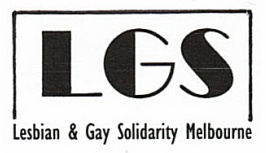




The following article was in the Gay In West Australia web pages, and was written by Gavin McGuren:
Twenty years ago on 10 March 1987, gay author Larry Kramer gave a speech in New York City that led two days later to the formation of ACT UP - the AIDS Coalition to Unleash Power. In his speech Kramer denounced what he saw as the political impotence of an existing organisation, Gay Men's Health Crisis (GMHC), formed to fight the spread of HIV/AIDS and to rally support for those already living with the virus.
ACT UP quickly established itself as a direct action group, and on 24 March, 250 members descended on Wall Street to disrupt the business of the day in protest over exorbitant prices for the new antiviral drug AZT. ACT UP members occupied the stock exchange floor and managed to delay the famous opening bell. Seventeen people were arrested and ACT UP's campaign of civil disobedience took its first step to international notoriety.
The Perth branch of ACT UP was founded during the first 'Pride Month' in October 1990, and managed to attract considerable media attention while it was active. The group quickly became a thorn in the side of Carmen Lawrence's ALP Government as it repeatedly attacked the policies of Health Minister Keith Wilson, a recent convert to Catholicism and staunch opponent of condoms and any sex apart from that between a married man and his dutiful wife. One of the most memorable images of ACT UP Perth's campaigns was The West Australian's photo of Sisters of Perpetual Indulgence, Ian Walker and Ruth Marshall, protesting outside the Federal Health Minister's office and looking for all the world like the Blues Brothers in convent drag.
ACT UP branches began to fall away as the situation improved year by year for gay men with HIV. The groups contribution to those improvements have been hotly debated but I think it's safe to say that while those early pioneers made a few tactical errors along the way, they had plenty to be proud of as well.
ACT UP's founder is now 72-years-old and he's still angryand demanding to know why so many heterosexual Americans hate gays. The author of the famed novel Faggots (with which he won few friends in gay circles), was every bit as angry and inspirational this month when he addressed a crowd at the LGBT Centre in New York City's Greenwich Village on Tuesday, 13 March.
Kramer told the crowd that they must not accept crumbs from the current crop of political candidates. "There is not one single candidate running for public office anywhere that deserves our votes, not one!" he thundered. "I will not vote for a one of them and neither should you, to vote for any one of them, to lend any one of them your support, is to collude with them in their utter disdain for us, and we must let every single one of them know that we will not support them."
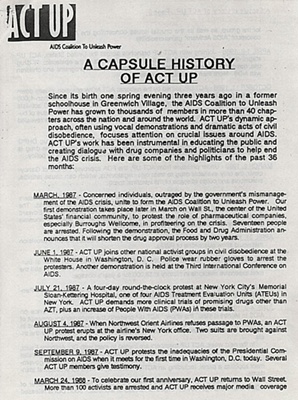
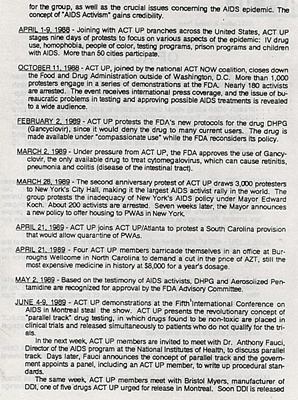
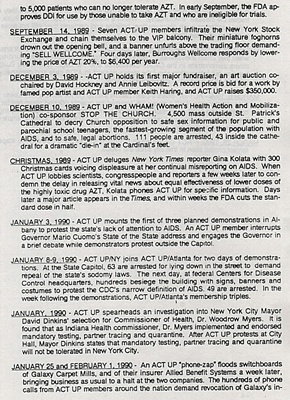
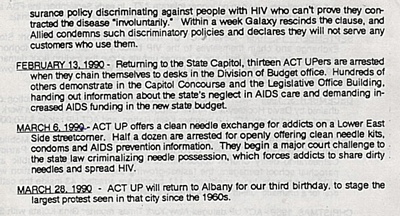

The ACT UP/NY archives, covering the years 1987 to 1995, have been given to The New York Public Library's Rare Books and Manuscripts Division at the Center for the Humanities at Fifth Avenue and 42nd Street, Paul LeClerc, President of the Library, announced today. ACT UP (The AIDS Coalition to Unleash Power) is a national and international nonpartisan activist group whose mission is to fight for "an end to the AIDS crisis." Dr. LeClerc said, "The ACT UP/NY archives are an important addition -- both to our extensive collections of AIDS-related materials and to our wide-ranging storehouse of documentation of other grass-roots movements in the United States."
Founded in New York City in March 1987, ACT UP is an all-volunteer organization which has had chapters in all major U.S. cities as well as in Paris, London, and Sydney. The archives given to the Library date from ACT UP/NY's inception to the present and consist of documents generated by the organization as well as the papers of individuals who made it their life's work to further the cause of ACT UP/NY. "The New York Public Library is the ideal recipient for the papers of ACT UP/NY because of its dedication to collecting a broad record of the AIDS epidemic and because of its policy of democratic access to its materials. The ACT UP/NY archives will be preserved and made accessible to every researcher who comes to the Library," said Stephen Shapiro of ACT UP.
Mimi Bowling, Curator of Manuscripts at the Library, said, "The Library has become a valuable resource for researchers in AIDS history and information, as we have been collecting AIDS-related materials for ten years. We already have the papers of institutions such as Gay Men's Health Crisis (GMHC), the People With AIDS Coalition, and Gran Fury, an artists' collective that created many of ACT UP's memorable graphics. Several divisions of the Library also work closely with The Estate Project of the Alliance for the Arts, in an effort to save the works of writers and artists with AIDS." The ACT UP/NY archives will be administered by the Rare Books and Manuscripts Division at the Library, which already holds a substantial collection of related papers of individuals who either are HIV positive or have died of AIDS-related causes, including writers and artists such as Vito Russo, David Feinberg, Harold Pickett, James Turcotte, Stuart Edelson, Arthur Johnson, Aaron Cohen, and Copy Berg.
The ACT UP/NY archives cover the major demonstrations of civil disobedience staged by the group in the 1980s, including the "actions" on the Food and Drug Administration (1988), St. Patrick's Cathedral (1989), and the National Institutes of Health (1990). The goals of ACT UP's direct actions include: explicit prevention education (such as distribution of condoms and sex education in the schools), information about and access to treatments for AIDS, an end to discrimination against people with HIV/AIDS, including the loss of jobs and benefits, and an "emergency" effort to find a cure for the disease.
Ms. Bowling said, "The ACT UP/NY records are unusual in that they represent a conscious self-documentation process. At each weekly meeting of ACT UP, photocopied literature is distributed on forthcoming actions and recent developments in such areas as experimental drugs, AIDS and people of color, reports on politicians, the National Institutes of Health, I.V. drug users, ACT UP/NY media, and insurance. The compilation of these documents, along with weekly files of media reports about ACT UP/NY, form the core of the archives. The Library has already begun the organization, preservation, and cataloging of the papers so that they can soon be used by researchers." The ACT UP/NY papers will be stored in a secure and climate-controlled environment to ensure their preservation.
The ACT UP/NY archives also include placards that were carried during "actions," as well as other graphics and artifacts such as posters, stickers, buttons, and even a lab coat painted with bloody handprints. These items, too, are documents, ones that succinctly communicate ACT UP/NY's major concerns and the group's rage, as well as the rich mix of graphic creativity abounding in the community from which ACT UP sprang. Some of the headlines memorialized by these graphics include the famous "Silence = Death," and several powerful others: "AIDS: Where Is Your Rage?," "The CDC Is a Dead End," "The Government Has Blood on Its Hands," and "One AIDS Death Every Half Hour."
The Rare Books and Manuscripts DivisionThe Rare Books and Manuscripts Division houses one of the world's foremost collections of rare book and manuscript materials, and is a vital and growing part of the Library's important collections. Other material acquired by the Rare Books and Manuscripts Division in recent months includes the papers of novelist, literary critic, and memoirist, Doris Grumbach, and the Emigrant Savings Bank Records, which chronicle the Irish immigration to the U.S. during and after the Potato Famine. The ACT UP/NY materials continue the Library's tradition of collecting the papers of groups dedicated to civil rights issues, including the Schwimmer/Lloyd Collection, a vast archive on women's rights, suffrage, peace movements, and world government; the American Fund for Public Service Records (originally known as the Garland Fund, which existed ca. 1920-1940 to support radical social and political causes); the National American Woman Suffrage Association Records; and the papers of Frank P. Walsh, a lawyer and supporter of civil rights and labor causes and Irish independence. The Division's holdings also include collections that relate to other epidemics, such as the John Shaw Billings Papers, the Thomas K. Wharton Diaries, the Noah Webster Papers, and the United States Sanitary Commission Records.
Information on AIDS Available in the Branch Libraries The New York Public Library offers a wide variety of information resources about HIV/AIDS. Every branch library has a special collection of New York City community information that contains directories, newsletters, and magazines listing local community services and programs directed toward the HIV/AIDS community. Branches also distribute thousands of free pamphlets from various organizations and government services. New books are constantly being added to the circulating collections of the adult, young adult, and children's rooms. Related books in languages other than English are also acquired as appropriate to the specific community. Frequently requested topics are nutrition, Chinese medicine, women, TB, safer sex practices, children, and AIDS advocacy. With the introduction of the Library's new online catalog, LEO (Library Entrance Online), users now have access to an index to over 1500 periodicals, many of them in full-text form. Never before have local branches been able to offer such a wealth of information from popular magazines. The strong point of the Library has been its book and periodicals collections, but videos, available in many branches, are also a valuable source of HIV/AIDS information. The new online catalog will not only tell you what titles the Library has, but also tell you in which branches they are located and whether they are currently on the shelf.
Access to the Internet has initiated a whole new world of information sources. HIV/AIDS service providers were quick to make these resources available in this exciting electronic environment. At local branches, anyone may use the Internet connection to check the HIV/AIDS resources developed by NOAH (New York Online Access to Health), the AIDS Data Network, or the New York Academy of Medicine.
The Branch Libraries, with funding from the National Library of Medicine and other donors, has set up three projects: STAR (Staten Island AIDS Resources); NORMA (Northern Manhattan AIDS Resources Project); and BEEHIVE (Bronx HIV/AIDS Education Project). These projects are designed to give PWAs (People With AIDS), their caregivers, and local community organizations the best and latest HIV/AIDS information to help them make informed decisions. These projects enable the Library to purchase additional copies of popular books, pamphlets, and videos, broaden the scope of the collections, add depth to the reference collections, provide a dedicated computer terminal to access information available on the Internet, and provide the training necessary to use the Internet effectively to locate the information. These projects have enabled the Library to expand its collections and services for a specific community for whose survival current information is vital.
PRO: nd, ls: 3/11/96Microfilming of the ACT UP/NY Records has been completed and the collection is once again open for research.
ACT UP Archives at the NYPLTo visit the Archives by appointment or to find out hours, call: (718) 768-DYKE (3953) Fax: (718) 768-4663. For specific information on the ACT UP collection at the Herstory Archives, you can contact Maxine Wolfe via her Voice Mail at 212-946-2180

The following two items were supplied by the National Gay Radio News - GRINS for this potted history of ACT UP:
An ACT UP chapter has been formed in France. The Parisian chapter of the AIDS Activists' Organisation was formed because of the preponderance of AIDS/HIV infection in France. The first action of the ACT UP chapter was a 'die-in' at the Pride March in Paris.
LONDON: ACT UP, the AIDS Coalition aimed at fighting injustice over HIV infection, has undertaken another safer sex raid on a British prison. This time they catapulted condoms and information on safer needle-use over the walls of Pentonville Prison.

AIDS COALITION TO UNLEASH POWER - ACT UP - ARRIVES IN AUSTRALIA IN 1990
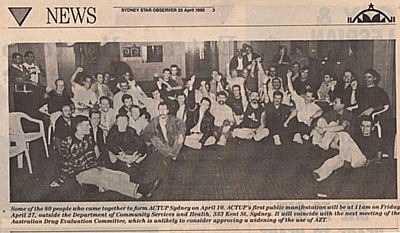
Photo in the Sydney Star Observer, 20 April 1990
Members of the Gay Solidarity Group were involved with ACT UP from its inception in Sydney until its collapse. The following item appeared in Gay Solidarity Newsletter No. 11 in April/May 1990:
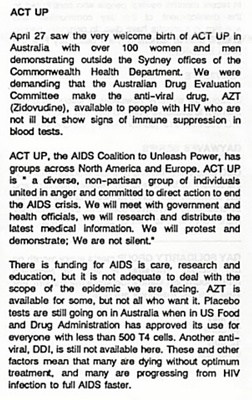


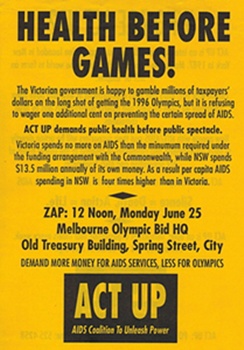
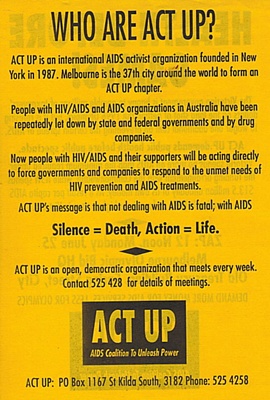

The follwing item was supplied by GAY RADIO NEWS - GRINS - for this potted history of ACT UP:
The Fourth National Conference on AIDS in Canberra began explosively on 9th August when a group of activists hijacked the opening to protest against delays in trial tests and approval of drugs for people with AIDS.
The Minister for Health, Mr Howe, who was to have opened the conference,became the target of angry protests from the AIDS Coalition to Unleash Power (ACT UP). A spokesman for the group, Bruce Brown, said the Federal Health Department's drug approval and evaluation system was morally inefficient, criminally incompetent and genocidal.
He said the Australian Drug Evaluation Committee (ADEC) was taking an average of two years to approve the use of drugs which had already been tested elsewhere.
A spokesman for the Australian Federation of AIDS Organisations (AFAO) told the conference that the Government was now proceeding at a "snail's pace" on recommendations in its own national strategy to combat AIDS.
"Too often of late, the silence on AIDS at the national level has been deafening," said the national president of AFAO, Bill Whittaker.
Calling for adequate funding of community groups, a uniform system of recording data on HIV infection and education of health care professionals, he said an absence of strong leadership at the national level was leading to the resurgence of public apathy and prejudice.

From Green Left Weekly No. 2:
SYDNEY — About 100 activists from the AIDS Coalition To Unleash Power (ACT UP) demonstrated at the offices of the NSW Anti-Discrimination Board on February 14 to highlight the refusal of the board to hold a public inquiry into AIDS/HIV-related discrimination.
After street theatre portraying the types of discrimination faced by people thought to be suffering from HIV or AIDS, the protesters entered the building to confront the president of the Anti-Discrimination Board, Steve Mark. Mock eviction notices were distributed to symbolise the refusal of goods and services to those perceived to be HIV-positive by government departments and employers.
In 1990, the board held a series of meetings to consider changes to the NSW Anti-Discrimination Act to strengthen its coverage of HIV-related discrimination.
The recommendations were presented to NSW attorney-general John Dowd, who dismissed them. Dowd even refused to accept that discrimination on the grounds of HIV status occurs. The board determined that a public inquiry was the only way to force the government's hand but has now refused to go any further.
After 10 years of the AIDS epidemic, the ADB has been unable to influence or force any legislation which would outlaw discrimination on grounds of HIV status. Extreme "horror files" at the ADB and the AIDS Council of NSW show that HIV/AIDS-related discrimination is rampant.
Institutionalised discrimination is still most prevalent in the health system. Doctors and dentists have refused to treat people who are HIV-positive or have AIDS, hospitals are conducting AIDS tests without patients' consent, there is discrimination in obtaining drug treatment, a major Sydney hospital has been using coloured arm bands to identify AIDS sufferers, and people with AIDS have been left on trolleys in hospital casualty wards for days because of bed shortages for patients with AIDS. There have also been cases of misuse and manipulation of information relating to HIV status by police and within the prison system.
ACT UP is continuing its campaign on the central issue of provision of treatments, and the related issue of discrimination often arising out of that. Further information on ACT UP Sydney can be obtained on (02) 281 0362.
From GLW issue 2
Ten years into the AIDS crisis some new drugs were at last becoming available - but in the USA - not Australia. The rate at which approvals were being given for new AIDS drugs to be used in Australia was slow to static and ACT UP decided to do something about it. The following leaflets show the start of a campaign attacking the Federal Health Minister Brian Howe.
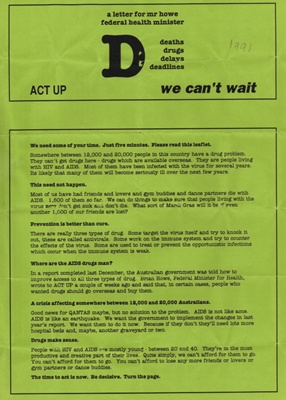
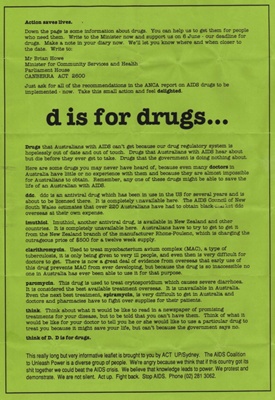

During 1993 a severe bed crisis hit St Vincent's Hospital in Sydney. ACT UP went into action and demonstrated when one of its members, who had to be admitted, was found lying on a stretcher in casualty for some considerable length of time.
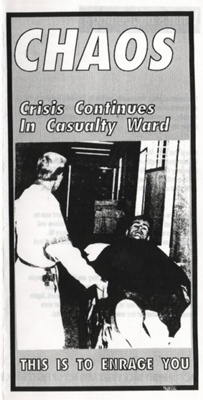
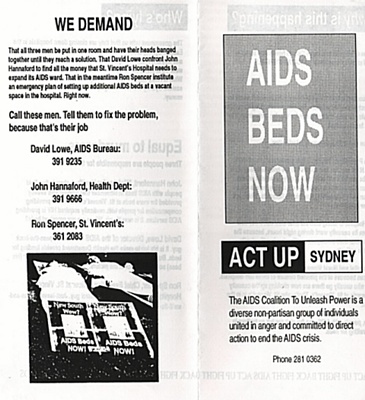
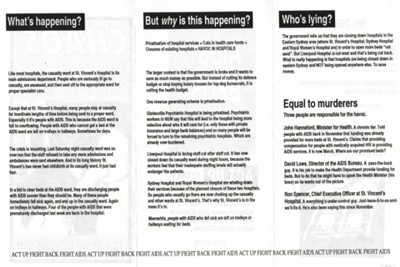

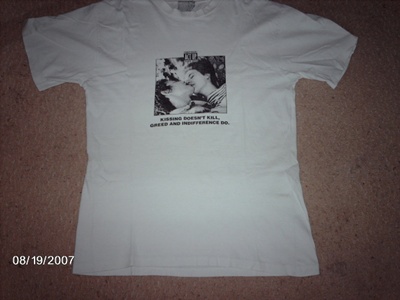

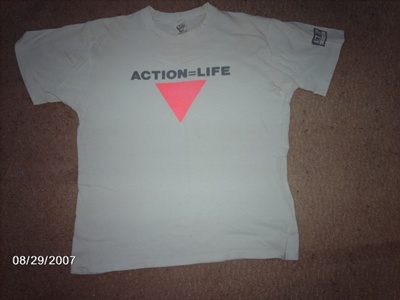



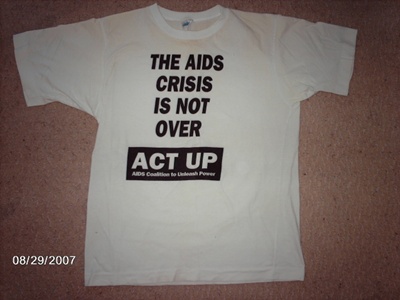

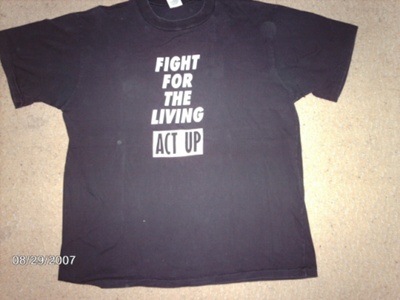

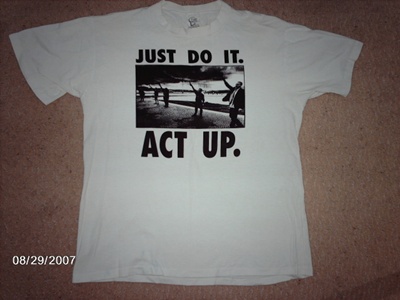

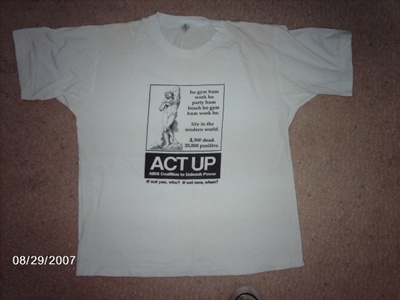





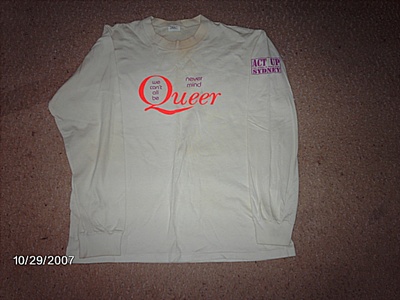



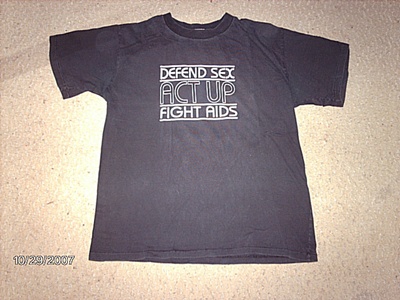

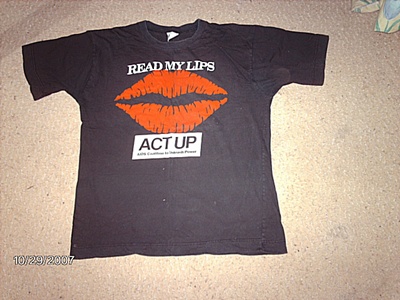

Our records to date show a newsletter produced by ACT UP from November 1990 to August 1992 ACT UP called LOWDOWN. We reproduce below those copies in our possession and request anyone with missing copies to contact us so that we can complete them on these web pages.
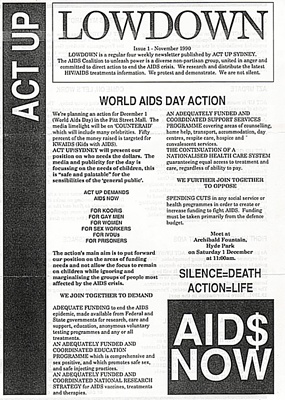
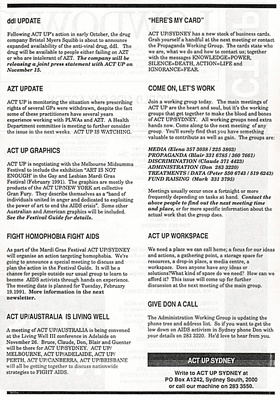
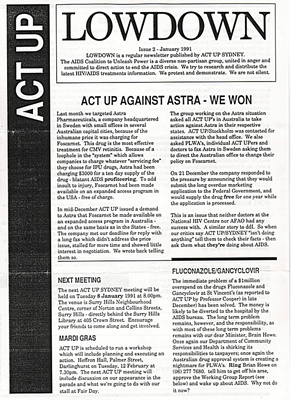
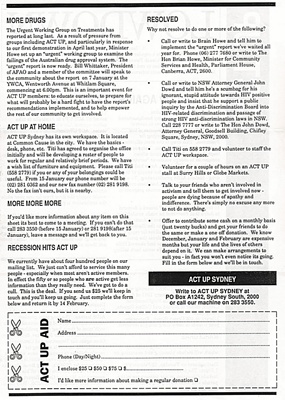
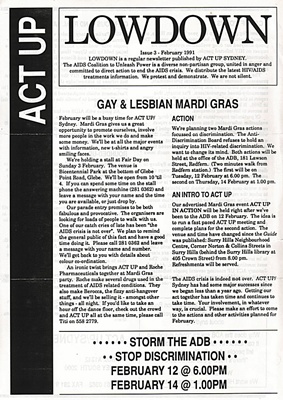
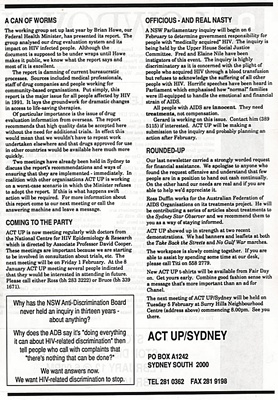
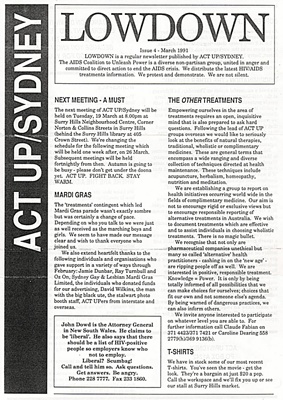
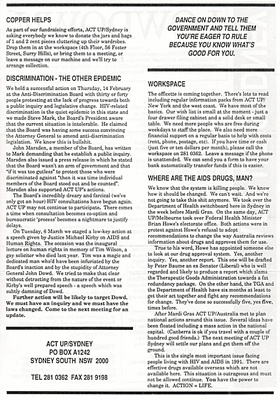
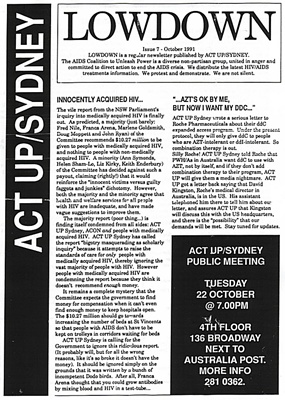
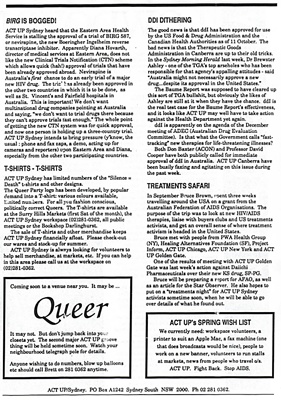
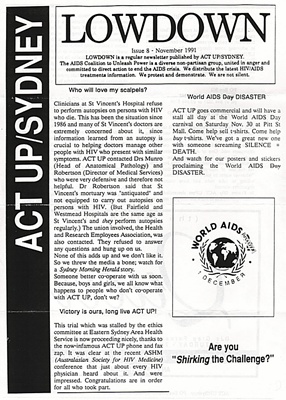
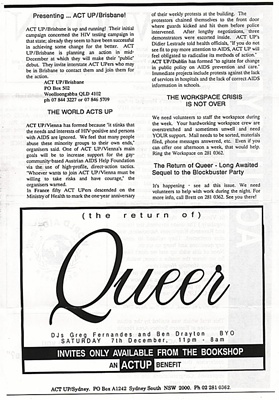
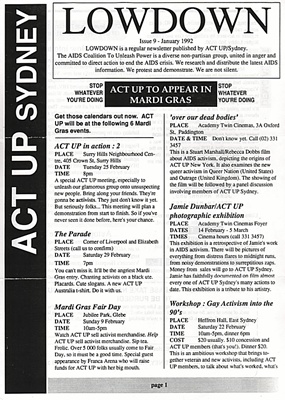
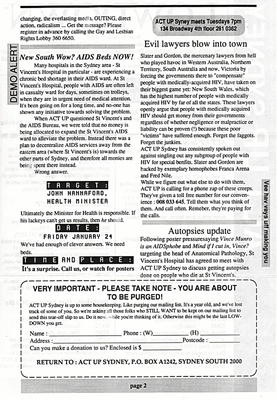
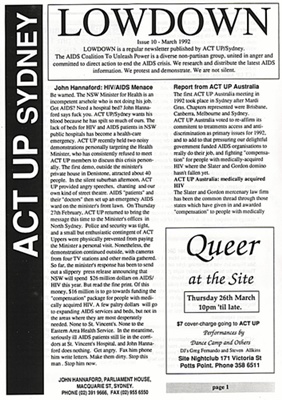
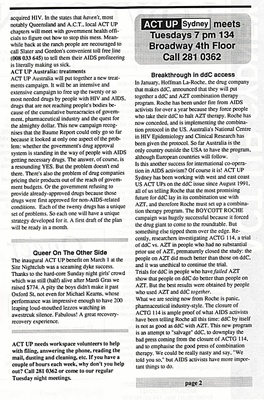
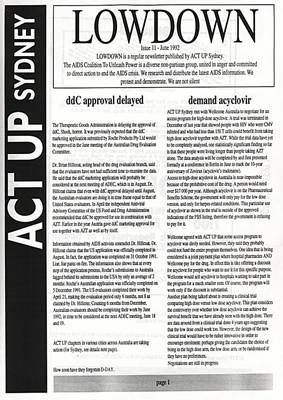
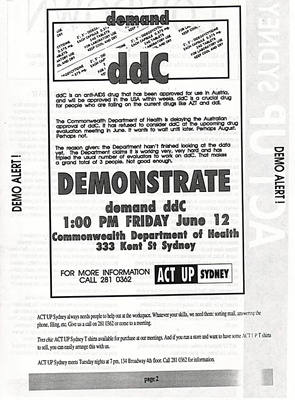
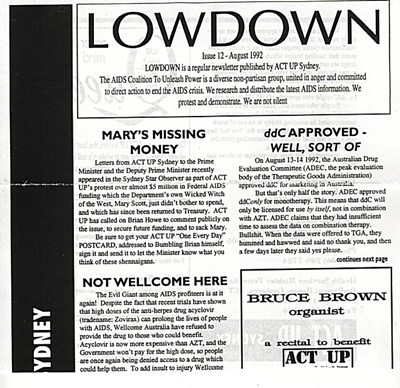
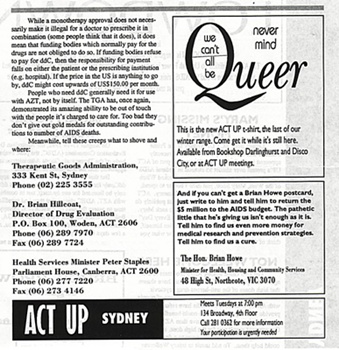

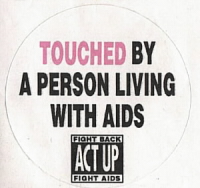
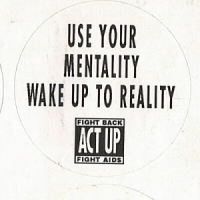
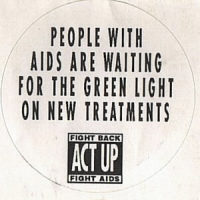
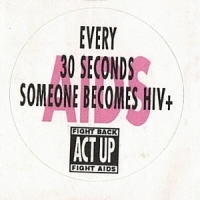
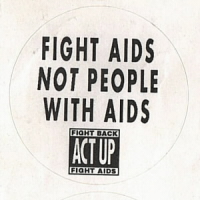 These stickers, designed to draw attention to the HIV/AIDS crisis and Act up's activities were to be stuck onto the pedestrian buttons at traffic lights around the country.
These stickers, designed to draw attention to the HIV/AIDS crisis and Act up's activities were to be stuck onto the pedestrian buttons at traffic lights around the country.


This article comes from the print version of the Johannesburg Sunday Times of 27 November 2011. It is an interesting fact that most of the articles from that day's newspaper are able to be found online, but not this one!! One wonders why!!
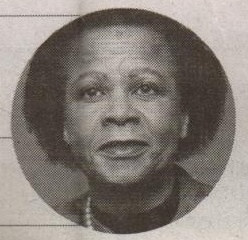
The cabinet decision on the judiciary this week seemed like a sweet offering, even a conciliatory gesture after the rancour of the secrecy bill fight. Cabinet spokesman Jimmy Manyi spoke of the independence of the judiciary, of enhancing the integrity of the Judicial Service Commission, of a mechanism that would promote the constitutionally enjoined obligation of cooperative government.
But all this was sugar coating, because at its heart there was poison for our democracy.
The core of the decision is that the role of the judiciary is to be assessed by an institute appointed by the government and that even the decisions of the Constitutional Court are to be subject to such assessment. This assessment, at the instigation of the executive, invites the assumption that the role of the courts, and the Constitutional Court in particular, as ultimate arbiters of our constitution is to be usurped.
There can be no escaping the impression that the cabinet’s cross-hairs are firmly pointed at the judiciary’s independence.
I know only too painfully well what it means when the judicial arm of government is cowed, is subjugated before the executive. Thirty-four years ago this month, the inquest into Steve Biko’s death was held. Despite the extensive and overwhelming evidence that Biko had been abused and murdered by the Security Branch, Pretoria’s Chief Magistrate delivered a verdict that exonerated each and every one of them. Counsel for the family, Sidney Kentridge, argued that such a verdict would give license to abuse helpless people with impunity. And it did. Scores died in detention in the years that followed.
A journalist wrote at the time: “There’s no word of sorrow or anger by the authorities, not even a suggestion detainees in future won’t suffer the same treatment. They just don’t care. And that is what South Africa voted for.”
And of course, that is what the small white electorate voted for.
Had the judiciary not been under the thumb of the executive, there is no guarantee that the chief magistrate would have reached a different verdict. But if the magistrate had had the assurance that finding the state culpable, that assessing fairly and independently would have earned him no recrimination from the executive, there is a much greater likelihood he would have delivered a just verdict.
Thankfully, we live now in different times. And yet the importance of strong, independent courts able to check government folly when it occurs remains. In the Treatment Action Campaign case, the Constitutional Court famously held that the government’s then policy of distributing Nevirapine, medication reducing the transmission of HIV from mother-to-child, to pregnant mothers living with HIV at only two clinics per province was in breach of the constitution’s right of access to healthcare – and unreasonable, given that the manufacturers of Nevirapine had offered it free of charge for two years and that the World Health Organisation had concluded that Nevirapine was an appropriate intervention to prevent mother-to-child transmission.
Who knows how many lives have been saved as a result of that decision. A cowed court, a court unduly fearful of executive repercussion could not have made such judgment. That the Constitutional Court did, that policy was altered, is a reflection of the health of our democracy, a tribute not only to our courts, but to our executive and legislative branches as well.
From our past, to our near past, the Constitutional Court is almost certain to be the next staging ground in the fight over the secrecy bill. Recent pronouncements by the executive highlight the fear that policies decided by a government elected by the popular vote will be countermanded through the courts. And our President is not wrong when he says: “Political battles must be fought on political platforms.” But majorities in parliament in South Africa and elsewhere – are not determinative of the constitutionality of laws made. Where there is concern for the legality or constitutionality of a law, courts must make the appropriate determination.
In many respects, the Constitutional Court is the bellwether of our democracy. It was the most significant new institution created at the time of our constitution’s enactment.
Interference with the court, implicit in the suggestion that its judgments and record are to be assessed, sets us back on the path to our constitutionally envisaged future.
And the sleight of hand – the cabinet’s talk of the need to “affirm the independence of the judiciary” through an assessment that cannot but create the impression that the independence of even our very highest court is at risk – undermines our intelligence.
As if we, who have been fighting for democracy all our lives, would not know.

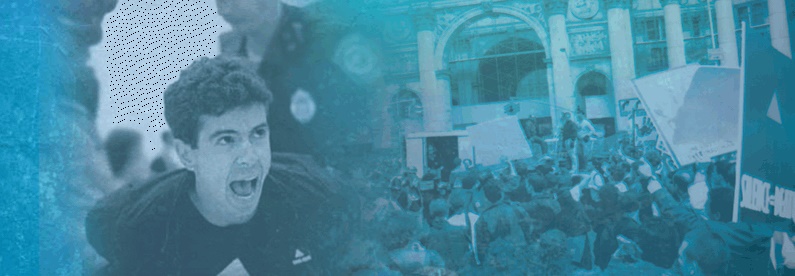
At the peak of the AIDS crisis, the AIDS Coalition to Unleash Power (ACT-UP) developed an innovative model of social movement organising, featuring provocative direct action, striking visual propaganda and the use of a range of new technologies to document and disseminate its actions. It was also influential in transforming understandings of healthcare, drug testing methodologies, corporate profit motives, mass media reporting of the experiences of the marginalised and attitudes to queer people themselves. Given its major significance in social movement history and its abundant archive of audio-visual material, that ACT-UP had not been a subject for documentary film-makers had been a major source of frustration. With two major features out in 2012, however, that historical anomaly has begun to be corrected.
The better known of these films is the Academy Award-nominated How to Survive a Plague by journalist David France, which has also been optioned as a mini-series. The other is Jim Hubbard’s United in Anger: a history of ACT-UP, which he co-produced with prominent queer scholar and long-term collaborator Sarah Schulman. Both centre on the story of ACT-UP New York, draw on similar footage and interview subjects, were funded by similar sources and feature both filmmakers in each film’s credits. However, the documentaries diverge in tone, style and in their central case for the historical significance of ACT-UP.
For France, the lasting legacy of ACT-UP emerges from its early demand to ‘get drugs into bodies’ as a means of curtailing the dramatic effects of the ‘plague’ on New York’s gay male population. His film centres on the efforts of a small subset of ACT-UP, the Treatment and Data Committee, which later split off from the main group as the Treatment Action Group (TAG). This body transformed people’s relationship to the virus through radical self-education, revolutionising the relationship between healthcare providers, medical scientists, government regulators and the affected. France is not wrong – TAG’s activities in many ways transformed HIV care. However, watching his film leaves the viewer with the sense that the history of AIDS activism is one in which a group of (self-) educated New Yorkers, largely white gay men, stopped the plague in its tracks through forcing engagement with major drug companies and government regulators.
A more complicated history is told in Hubbard’s film, which sees the group as an object lesson in social movement organisation. Hubbard’s focus is on the tactical and strategic decisions of ACT-UP, including its use of weekly mass meetings and affinity groups. This dual structure allowed for collective decision-making, as well as autonomous organising in trusted small groups. United in Anger also places a much greater emphasis on visual imagery, graphic design and video, documenting the collective Gran Fury, whose iconic designs transformed the nature of social movement art, the Damned Interfering Video Artists Television (DIVA-TV), which recorded and distributed footage of ACT-UP’s actions, and the later ACT-UP Oral History Project, which Hubbard and Schulman coordinated.
Hubbard is also concerned that his film records not only the experiences of white gay men. Lesbians and other women were central figures in ACT-UP, as people who understood through their own experiences of organising against the unjust nature of privatised healthcare and inadequate public infrastructure. The impact of these injustices on the poor became more prominent as the virus increasingly affected broader populations. Hubbard’s documentation of the roles of IV drug users, people of colour, women and homeless people reveals that ACT-UP was much more than just a drug access movement. It saw that the institutions that governed US society – corporations, the state and the church – were all in need of radical transformation.
As a queer man who is just a few years younger than the central figures in this story, I am fortunate not to have had to live through the deaths of hundreds of lovers and friends. As beneficiaries of the legacy of ACT-UP, we must honour this history as a history of collective resistance to a virus that resulted in the radical transformation of treatment and health care for many people living with HIV. It is also essential, however, for us to honour this history as one that shows that access is an insufficient demand; our movements must be willing to demand structural and social change. Sometimes this requires us to literally put our bodies on the line.
As long as there is no cure for AIDS, as long as access to human needs is conditional on wealth and privilege, and as long as injustices remain in the world, ACT-UP’s battle is not over. These films remind us of those who struggled, achieving partial wins and suffering many, many losses. They also call on us to continue to ‘ACT UP, Fight Back, and Fight AIDS’.
Find out how to get hold of the films at www.surviveaplague.com
and www.unitedinanger
Additional interviews with ACT-UP members can be viewed for free at www.actuporalhistory.org

"All of the 97 Australian AIDS Memorial Quilts we have acquired are now on line and can be viewed here
Australian AIDS Memorial Quilts
The Museum's fabulous team of volunteers have also been documenting (as much as we can ) information on the individual panels and are up to Quilt 88 so by early next year (2014) the panel information will be up in detail.
I also developed an exhibition last year HIV & AIDS 30 years on: the Australian story
HIV and AIDS 30 years on: the Australian story


HIV/AIDS ISSUES PART 5 (Quilt Displays)


| Photos
of the Groves |

Mannie has a personal web site: RED JOS: HUMAN RIGHTS ACTIVISM
Mannie's blogs may be accessed by clicking on to the following links:
MannieBlog (from 1 August 2003 to 31 December 2005)
Activist Kicks Backs - Blognow archive re-housed - 2005-2009
RED JOS BLOGSPOT (from January 2009 onwards)

This page updated on 15 MAY 2014 and again on 8 MAY 2017
PAGE 110